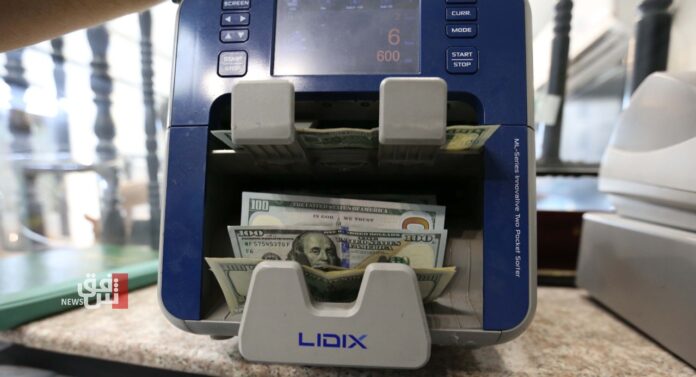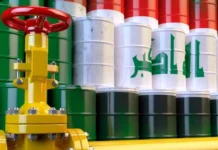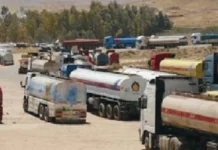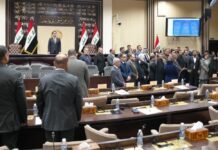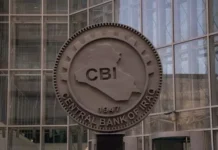A report from Agence France-Presse Press, which was viewed by, states that the daily lives of residents have been complicated due to the emergence of a parallel exchange market and the authorities’ imposition of restrictions to strengthen banking supervision in compliance with international rules imposed by Washington.
The official exchange rate for one dollar is 1,320 dinars. However, money changers sell a dollar for 1,500 dinars up to 1,600 dinars. Due to price manipulation, currency exchange offices now deal with customers with extreme caution. Dozens of money changers have been arrested for this offense, according to the report.
The Central Bank of Iraq announced in a statement that, as of January, all commercial and other transactions in the country will be restricted to Iraqi dinar instead of the dollar.
“Monetary Sovereignty”
Starting from this year 2024, it is mandatory to deposit all funds received from abroad in dinars and withdraw them only in dinars at the official exchange rate. Cash withdrawals in dollars are not allowed. This means that any hard currency previously held must be deposited in the local currency.
The Prime Minister’s Advisor for Affairs, Mazhar Saleh, confirmed that “this is a rule that falls under monetary sovereignty, but there are exceptions, especially for embassies.”
“Cash… it is not possible to deal in two currencies within the national economy.” He adds that they strengthen sovereignty. However, these restrictions raise controversy and disrupt the daily life of Iraqis, according to Agence France-Presse.
Banking in Iraq has undergone changes that limit the use of dollars and restrict transactions to dinars at the official exchange rate. The sector has adopted an electronic platform aimed at monitoring the use of the dollar and tightening control over the growing informal economy. Some importers and traders have been evading taxes, which has prompted the need for better regulation.
The Prime Minister, Muhammad Shiaa, approved new procedures that made hard currency available. As a result, the market declined from “200 to $300 million” per day to “30,” “40,” and “50” million dollars.
Last September, Al-Sudani explained that merchants dealing with Iran are forced to turn to the parallel market to obtain currency, as Iran faces sanctions and is not allowed to conduct financial transfers.
During a recent announcement, he confirmed that the central authorities in Iraq and Iran are discussing a mechanism to organize trade, which could potentially eliminate the parallel market.
“Suspicious trade”
The government announced in late November that facilities can now obtain foreign currency through official channels by paying importers of cigarettes, cars, gold, and portable telephones.
Authorities encourage the use of currencies other than the dollar for bilateral exchanges, such as the euro, UAE dirham or Chinese yuan.
The advisor to the Prime Minister, Mazhar, defended Saleh regarding banking restrictions that were put in place to verify international transfers. The aim was to reassure the international financial community and also to ensure that these transfers were being used to finance Iraq’s trade. The question being asked was whether these transfers were actually being used for Iraq’s trade or not, and this was also important for the sake of Iraqi society.
Saleh said that despite some structural changes in dealing with foreign currency, Iraq now has the highest level of foreign reserves in its financial history.
He stated that it was to protect the country. With a population of 43 million people, importers have access to the dollar and can buy it at the official rate, which is more beneficial for them.
This is particularly true for food, medicine, and construction materials. Saleh believes this promotes stability and counteracts the black market.
